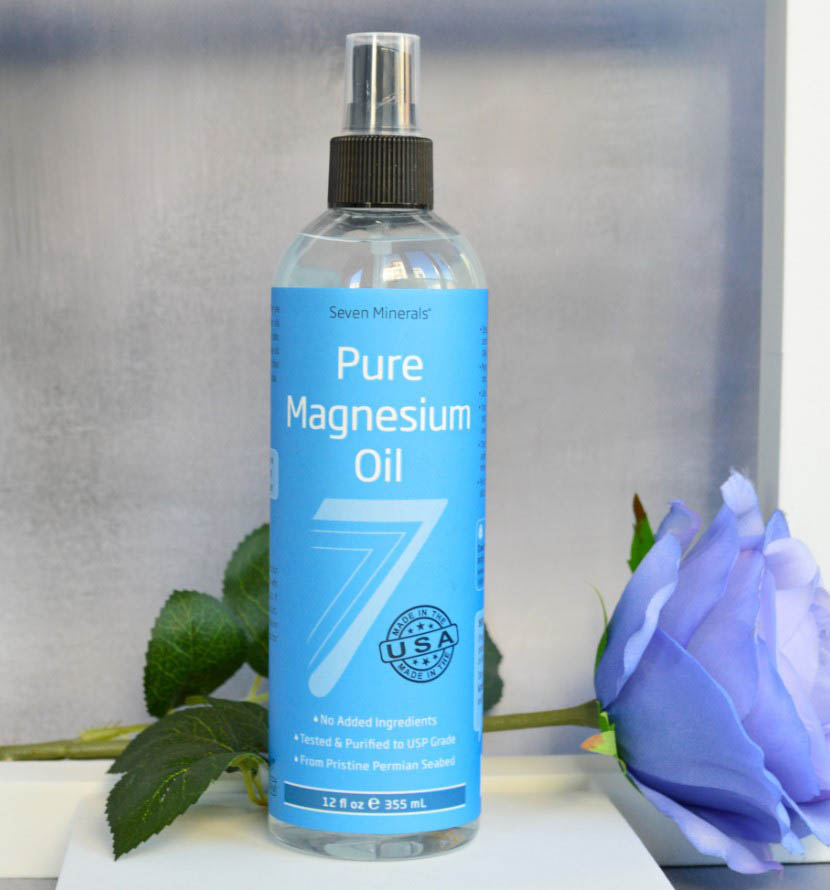Within the domain of health and wellness, magnesium has risen as a potent mineral, presenting a myriad of advantages to the human body. Among its diverse forms, pure magnesium oil Spray has attracted considerable interest. In this thorough examination, we delve into the core of magnesium oil, unveiling its composition, origins, manufacturing process, and beyond. Embark with us as we uncover the realities surrounding magnesium oil in the year 2024.
What is magnesium oil?
Definition and Composition
- Deciphering the Formula of Magnesium Oil:
Magnesium oil constitutes a concentrated solution of magnesium chloride, often mixed with water for topical usage. It is celebrated for its capacity to transport magnesium directly to the skin, enabling swift absorption into the bloodstream.
- The Importance of Magnesium in the Human Body:
Magnesium holds a crucial position in various physiological functions, encompassing muscle operation, nerve signaling, energy generation, and skeletal strength. Insufficient magnesium levels can contribute to a range of health complications, underscoring the significance of magnesium supplementation.
- Magnesium Oil vs. Other Magnesium Supplements:
Unlike oral magnesium supplements, which may encounter digestive limitations, magnesium oil offers a bypass route, ensuring efficient absorption through the skin. This unique delivery mechanism sets it apart from traditional supplements.

Origins of Magnesium Oil
- Obtaining Magnesium Chloride from Natural Sources:
Magnesium oil primarily originates from natural reservoirs, notably ancient seabed and subterranean deposits abundant in magnesium chloride. These sources provide a concentrated and readily absorbable variant of magnesium oil.
- Synthetic Manufacturing of Magnesium Oil:
In addition to natural sources, magnesium oil can also be synthesized through chemical processes. However, the efficacy and purity of synthetically manufactured magnesium oil may vary, raising concerns regarding its quality.
- Quality and Purity Considerations:
When selecting magnesium oil, it’s imperative to prioritize quality and purity. Opting for products sourced from natural reserves and subjected to rigorous quality control measures ensures optimal efficacy and safety.
Production Process:
- Extraction and Purification Methods:
The production of magnesium oil involves meticulous extraction and purification methods to obtain a concentrated solution of magnesium chloride. These processes aim to eliminate impurities and enhance the bioavailability of magnesium.
- Additives and Preservatives in Magnesium Oil:
Some magnesium oil formulations may contain additives or preservatives to prolong shelf life or improve texture. However, consumers should scrutinize product labels and opt for formulations free from unnecessary additives to minimize potential risks.

- Quality Control and Production Standards:
Reputable manufacturers adhere to stringent quality control protocols and production standards to uphold the integrity of their magnesium oil products. Certifications such as GMP (Good Manufacturing Practice) and third-party testing validate the quality and purity of the final product.
Understanding of Magnesium Oil Benefits
Magnesium oil, hailed for its potent therapeutic properties, has garnered widespread acclaim in the realm of holistic wellness. In this exploration, we delve into the multifaceted benefits of magnesium oil, shedding light on its profound impact on sleep, stress management, muscular health, and skin vitality.
Improved Sleep and Stress Management:
- The Link between Magnesium and Sleep:
Magnesium plays a pivotal role in regulating neurotransmitters and hormones involved in sleep-wake cycles, promoting restful sleep and combating insomnia.
- Impact of Magnesium on Stress Hormones:
Adequate magnesium levels are crucial for modulating stress hormones like cortisol, thereby promoting relaxation and alleviating anxiety.
- Evidence from User Experiences and Studies:
Anecdotal accounts and scientific studies alike attest to the sleep-enhancing and stress-reducing effects of magnesium oil, making it a valuable ally in combating sleep disturbances and stress-related ailments.
Alleviating Muscle Pain and Cramps
- Role of Magnesium in Muscular Health:
Magnesium is indispensable for muscle function and relaxation, with deficiencies linked to muscular cramps, spasms, and pain.
- Effectiveness in Relieving Muscle Pain:
Topical application of magnesium oil has shown promise in relieving muscle soreness, tension, and discomfort, offering a natural alternative to conventional pain relievers.
- Research on Magnesium Oil for Cramp Relief:
Clinical research underscores the efficacy of magnesium oil in alleviating muscle cramps and spasms, providing symptomatic relief and enhancing muscular recovery post-exertion.
Improving Skin Health and Appearance
- Utilizing Magnesium Oil for Acne and Skin Inflammation:
Magnesium showcases anti-inflammatory characteristics, offering advantages in addressing acne, imperfections, and skin redness.
- Anti-aging Properties of Magnesium:
Magnesium contributes to collagen synthesis and cellular regeneration, imparting anti-aging benefits such as improved skin elasticity and diminished fine lines.
- Moisturizing Effects and Skin Hydration:
The hydrating properties of magnesium oil help replenish moisture levels in the skin, fostering a supple, radiant complexion devoid of dryness and dehydration.

Exploring Potential of Magnesium Oil Side Effects: What You Need to Know
While magnesium oil is celebrated for its numerous health benefits, it’s essential to be aware of potential side effects that may arise, particularly with improper usage or individual sensitivities. In this informative guide, we delve into common magnesium oil side effects and provide insights on how to mitigate them.
- Skin Irritation:
One of the most common side effects of magnesium oil is skin irritation, characterized by redness, itching, or a tingling sensation upon application.
This reaction is often temporary and mild, but for individuals with sensitive skin, it may persist or worsen over time.
- Allergic Reactions:
Some individuals may experience allergic reactions to magnesium oil, manifesting as hives, swelling, or difficulty breathing.
Allergic responses are relatively rare but can be severe in certain cases, requiring immediate medical attention.
- Gastrointestinal Upsets:
In rare cases, applying magnesium oil topically can result in gastrointestinal disturbances, such as nausea, diarrhea, or abdominal discomfort. This can happen if magnesium oil is accidentally swallowed or if individuals sensitive to it experience systemic absorption through the skin.
- Exacerbation of Skin Conditions:
Individuals with pre-existing skin conditions, such as eczema or psoriasis, may find that magnesium oil exacerbates their symptoms.
While magnesium oil is generally well-tolerated, its high magnesium concentration and osmotic properties may irritate sensitive skin or disrupt the skin barrier function.
- Low Blood Pressure:
Extended or excessive application of magnesium oil might decrease blood pressure, causing sensations of dizziness, lightheadedness, or fainting. Individuals with low blood pressure or those using medications that lower blood pressure should be cautious when using magnesium oil.

Mitigating Magnesium Oil Side Effects
Perform a patch test: Before widespread use, apply a small amount of magnesium oil to a small area of skin and monitor for any adverse reactions.
Dilute if necessary: For individuals with sensitive skin, diluting magnesium oil with water or incorporating it into a carrier oil may help reduce the risk of irritation.
Limit usage: Avoid overuse of magnesium oil and adhere to recommended dosage guidelines to minimize the risk of side effects.
Consult a healthcare professional: If experiencing persistent or severe side effects, seek guidance from a healthcare provider to determine the appropriate course of action.
How to Use Magnesium Oil Effectively?
Harnessing the therapeutic benefits of magnesium oil necessitates not only understanding its properties but also mastering the art of effective application. In this guide, we delve into the nuances of utilizing magnesium oil to maximize its efficacy while minimizing potential risks and side effects.
Application Methods and Dosage
- Topical Application Techniques:
Explore various application methods such as spraying, massaging, or soaking to ensure optimal absorption and coverage.
- Recommended Dosage Guidelines:
Adhere to recommended dosage guidelines provided by manufacturers or healthcare professionals to prevent overdosing or underdosing.
- Application Timing and Frequency:
Develop a regular application routine, taking into account individual requirements, desired results, and absorption rates, to maximize effectiveness.
Precautions and Side Effects
- Potential Allergies and Sensitivities:
Conduct a patch test prior to widespread use to assess for potential allergic reactions or sensitivities.
- Irritation and Skin Reactions:
Monitor for signs of irritation or skin reactions, such as redness or itching, and discontinue use if adverse effects occur.
- Potential Interactions with Medications:
Seek guidance from a healthcare professional, particularly if you are taking medications, to manage potential interactions or contraindications.
Factors Affecting Absorption:
- Skin Conditions and pH Levels:
Consider the influence of skin conditions and pH levels on magnesium absorption, adjusting application techniques or formulations accordingly.
- Temperature and Humidity Factors:
Optimize absorption by applying magnesium oil to clean, warm skin, and consider environmental factors such as temperature and humidity.
- Magnesium Oil vs. Other Topical Applications:
Compare the efficacy and absorption rates of magnesium oil with other topical applications to make informed choices based on individual preferences and needs.
Unveiling the Surprise Using Benefits of Magnesium Oil on Feet
While the benefits of magnesium oil for overall health are widely recognized, its application specifically to the feet holds a myriad of unique advantages. In this insightful exploration, we delve into the remarkable benefits of using magnesium oil on your feet and how this simple practice can contribute to your well-being.
- Enhanced Absorption:
The skin on the feet boasts large pores and minimal hair, making it an ideal area for the efficient absorption of magnesium oil. When applied to the feet, magnesium oil bypasses the digestive system, allowing for rapid absorption of magnesium directly into the bloodstream.
- Improved Sleep Quality:
Massaging magnesium oil into the soles of the feet before bedtime can promote relaxation and calmness, aiding in the induction of restful sleep. Magnesium plays a crucial role in regulating neurotransmitters and hormones involved in the sleep-wake cycle, making it an invaluable ally for those seeking improved sleep quality.
Muscle Relaxation and Pain Relief
The feet bear the brunt of daily activities and may accumulate tension and discomfort over time. Applying magnesium oil to the feet can help alleviate muscle soreness, cramps, and fatigue. The natural muscle relaxing properties of magnesium oil function to alleviate tension and enhance sensations of relaxation and overall well being.
- Stress Reduction:
The feet contain numerous reflexology points that correspond to various organs and systems in the body. Massaging magnesium oil into these points can stimulate relaxation and alleviate stress.
By promoting a sense of calm and tranquility, magnesium oil application on the feet can serve as a simple yet effective stress management technique.
- Foot Care and Miniaturization:
Consistent application of magnesium oil to the feet can enhance foot health and hydration. Magnesium assists in preserving skin elasticity and moisture content, averting dryness and fissures. The natural antibacterial properties of magnesium oil might alleviate foot conditions like athlete’s foot or foot odor.
Incorporating Magnesium Oil into Your Foot Care Routine
Start by washing your feet and ensuring they are completely dry. Apply a small amount of magnesium oil to the soles of your feet and massage gently until absorbed. For optimal results, incorporate magnesium oil application into your nightly routine before bedtime or after a long day on your feet.
Debunking Misconceptions about Magnesium Oil
In the realm of natural remedies, magnesium oil has garnered attention for its purported benefits. However, amidst the hype, misconceptions often abound. In this elucidative discourse, we dismantle prevalent myths surrounding magnesium oil, offering clarity and insight into its true efficacy.
Instant Pain Relief
- Understanding the Mechanism of Action:
Magnesium oil aids in pain relief by modulating nerve signaling and reducing inflammation, but its effects may not be instantaneous.
- Realistic Expectations for Pain Relief:
While magnesium oil can alleviate discomfort, it’s important to manage expectations and recognize that its efficacy may vary depending on the severity and underlying cause of pain.
- Contrasting with Other Pain Management Choices:
Magnesium oil provides a natural and viable alternative to traditional pain relief methods, presenting holistic advantages devoid of potential risks linked with certain medications.
Replacement for Oral Magnesium Supplements
- Absorption Rates and Bioavailability:
Topical application of magnesium oil may provide faster absorption compared to oral supplements, but it’s essential to consider individual absorption rates and preferences.
- Complementary Use with Oral Supplements:
Rather than replacing oral magnesium supplements entirely, magnesium oil can complement existing regimens, offering targeted relief and optimizing overall magnesium intake.
- Considerations for Individual Needs:
Tailor magnesium supplementation to individual needs and preferences, considering factors such as absorption efficiency, tolerability, and desired outcomes.
Detoxification Claims
- Understanding the Detoxification Process:
While magnesium oil may support detoxification indirectly by promoting relaxation and enhancing cellular function, it’s crucial to clarify that it is not a detoxification agent per se.
- Lack of Scientific Evidence:
Despite widespread claims, scientific evidence supporting magnesium oil’s direct role in detoxification remains inconclusive, emphasizing the importance of evidence-based practices.
- Promoting Overall Wellness Despite Misconceptions:
Rather than focusing solely on detoxification claims, embrace magnesium oil for its proven benefits in promoting sleep, relieving muscle tension, and supporting overall well-being.

Unveiling the Power of Magnesium Oil Spray: A Comprehensive Guide
Magnesium oil spray has emerged as a convenient and effective way to reap the numerous health benefits of magnesium supplementation. In this comprehensive guide, we delve into the wonders of magnesium oil spray, exploring its uses, benefits, and how to incorporate it into your wellness routine.
What is Magnesium Oil Spray?
Magnesium oil spray is a topical solution crafted from magnesium chloride flakes dissolved in water. It’s directly applied to the skin, facilitating swift absorption of magnesium into the bloodstream.
The spray format provides convenience in application, making it an easy choice for daily use whether at home or while on the move.
Advantages of Using Magnesium Oil Spray
a. Muscle Relief: Utilizing magnesium oil spray can alleviate muscle tension, cramps, and discomfort, fostering relaxation and relief.
b. Enhanced Sleep: Through assisting in the regulation of neurotransmitters and hormones crucial for sleep, magnesium oil spray may enhance sleep quality and promote relaxation.
c. Stress Alleviation: Application of magnesium oil spray onto the skin can mitigate stress and anxiety, fostering a feeling of tranquility and wellness.
d. Enhanced Athletic Performance: Athletes and fitness enthusiasts may notice improved muscle function, recovery, and overall performance through the application of magnesium oil spray.
How to Apply Magnesium Oil Spray:
Before use, shake the bottle thoroughly to ensure consistent dispersion of magnesium oil.
Directly spray onto clean skin, prioritizing areas with thin skin and high blood flow for optimal absorption.
Massage the oil into the skin gently until it absorbs completely. It’s typical to feel a mild tingling sensation upon application.
Incorporating Magnesium Oil Spray into Your Daily Routine
Integrate magnesium oil spray into your daily wellness routine, whether in the morning or before bedtime.
Adjust the frequency and dosage of the application according to individual needs and preferences.
Experiment with different application techniques, such as spraying directly onto the skin or adding to bathwater for a relaxing soak.
Selecting the Ideal Magnesium Oil Spray
Opt for premium magnesium oil sprays crafted from pure magnesium chloride flakes, devoid of any additives or preservatives.
When choosing a magnesium oil spray, take into account elements like concentration, purity, and source to guarantee the utmost effectiveness and safety.

Unveiling the Science Behind Magnesium Oil: Insights from Clinical Research
Research and Scientific Evidence
In the pursuit of understanding the therapeutic potential of magnesium oil, scientific research serves as a beacon of truth. This segment delves into the realm of clinical studies, shedding light on recent findings, the impact of magnesium deficiency, and comparisons with other topical magnesium products.
Recent Advances in Magnesium Oil Clinical Research
a. Examination of Recent Research Discoveries:
Investigate the most up-to-date scientific literature elucidating the effectiveness and mechanisms of action of magnesium oil across a spectrum of health applications.
b. Analysis of Methodologies and Study Designs:
Probe into the methodologies utilized in clinical investigations, encompassing randomized controlled trials, observational studies, and systematic reviews, to evaluate the credibility and consistency of outcomes.
c. Essential Findings and Conclusive Remarks:
Condense the significant findings and ultimate deductions derived from clinical inquiry, accentuating the therapeutic advantages and plausible constraints of magnesium oil across diverse scenarios.
Magnesium Deficiency and its Impact
a. Understanding Magnesium Deficiency:
Examine the prevalence and causes of magnesium deficiency, elucidating its impact on overall health and well-being.
b. Symptoms and Health Implications:
Uncover the diverse symptoms and health implications associated with magnesium deficiency, ranging from muscle cramps and fatigue to cardiovascular issues and mood disorders.
c. Role of Magnesium Oil in Addressing Deficiency:
Explore how magnesium oil supplementation can help address magnesium deficiency, promoting optimal magnesium levels and mitigating associated health risks.
Comparisons with other Topical Magnesium Products
a. Magnesium Oil vs. Magnesium Lotions:
Contrast the characteristics and efficacy of magnesium oil with other topical formulations such as lotions or creams, considering factors like absorption rates and user preferences.
b. Pros and Cons of Different Formulations:
Evaluate the strengths and weaknesses of various magnesium formulations, including oil, lotions, and sprays, to guide informed decision-making.
c. User Experiences and Preferences:
Incorporate user testimonials and preferences to provide insights into the real-world experiences and perceived benefits of different magnesium products.
Exploring the Potential of Magnesium Oil for Hair: An In-Depth Guide
Magnesium oil, celebrated for its numerous health advantages, is now capturing interest for its possible role in enhancing hair health and vibrancy. Within this thorough guide, we delve into the marvels of magnesium oil for hair, examining its perks, uses, and methods for integrating it into your hair care regimen.
Understanding Magnesium Oil for Hair
Magnesium oil is a topical solution made from magnesium chloride flakes dissolved in water. When applied to the scalp and hair, it provides a concentrated dose of magnesium, which is essential for healthy hair growth and maintenance.
Benefits of Magnesium Oil for Hair
- Scalp Health: Magnesium oil helps nourish the scalp and regulate sebum production, promoting a balanced and healthy environment for hair follicles to thrive.
- Hair Growth: By supporting cellular regeneration and blood circulation to the scalp, magnesium oil may stimulate hair follicles and encourage faster and thicker hair growth.
- Hair Strength and Elasticity: Magnesium contributes to the structural integrity of hair strands, helping to strengthen the hair shaft and enhance elasticity, reducing breakage and split ends.
- Scalp Relaxation: Massaging magnesium oil into the scalp can promote relaxation and alleviate tension, which may contribute to a healthier scalp environment and improved hair growth.
How to Use Magnesium Oil for Hair?
Dilute magnesium oil with water or a carrier oil such as coconut or jojoba oil to reduce its concentration and minimize the risk of scalp irritation.
Apply the diluted magnesium oil to the scalp and hair, focusing on areas of concern or where hair growth is desired.
Gently massage the oil into the scalp for a few minutes to promote absorption and stimulate blood circulation.
Leave the oil on for at least 30 minutes or overnight before washing it out with a gentle shampoo.

Adding Magnesium Oil to Your Hair Care Regimen
Use magnesium oil for hair treatment once or twice a week as part of your regular hair care routine.
Experiment with different dilution ratios and application techniques to find what works best for your hair type and needs.
Combine magnesium oil with other natural ingredients known for their hair-enhancing properties, such as essential oils or herbal extracts, for added benefits.
Choosing the Right Magnesium Oil for Hair
Look for high-quality magnesium oil sourced from natural, pure magnesium chloride flakes to ensure effectiveness and safety.
Check for additional ingredients or additives that may be included in the product and opt for pure formulations whenever possible.
Conclusion
Magnesium oil offers a natural and effective solution for promoting hair health and vitality. By incorporating magnesium oil into your hair care routine, you can nourish your scalp, strengthen your hair, and stimulate growth, unlocking the secrets to luscious locks and radiant hair.
Summary
This long-form article provides an in-depth review of magnesium oil in 2024. It explores various aspects such as its definition, composition, and production process. The article also dives into the benefits of magnesium oil, including its effects on sleep, stress management, muscle pain, and skin health. It provides guidance on effective usage, precautions, and factors influencing absorption. Additionally, the article debunks misconceptions surrounding magnesium oil and examines the existing research and scientific evidence. Lastly, it compares magnesium oil with other topical magnesium products. A summary of the key findings is provided along with frequently asked questions addressing common concerns about magnesium oil.
Magnesium Oil FAQs: Your Comprehensive Guide to Understanding its Uses and Benefits
As the popularity of magnesium oil continues to rise, so do the questions surrounding its efficacy, safety, and applications. This FAQ section aims to address common queries, providing clarity and insight into the multifaceted world of magnesium oil.
When used as directed, magnesium oil is generally safe for daily use. However, it’s advisable to start with a lower dosage and monitor for any adverse reactions. Consulting with a healthcare professional can provide personalized guidance based on individual needs and health status.
Applying magnesium oil to the feet is a convenient method that allows for efficient absorption into the body. The feet contain large pores and minimal hair, facilitating enhanced penetration of magnesium ions into the bloodstream.
For promoting sleep, magnesium oil can be applied to areas with thin skin and high blood flow, such as the inner wrists, temples, or the bottoms of the feet. Massaging a small amount of magnesium oil into these areas before bedtime may help induce relaxation and improve sleep quality.
Scientific research has demonstrated the potential benefits of magnesium oil in various areas, including muscle relaxation, sleep quality, and stress management. Clinical studies, observational research, and user testimonials contribute to the growing body of evidence supporting the therapeutic effects of magnesium oil.
More FAQs
While both magnesium oil and oral magnesium supplements aim to increase magnesium levels in the body, they differ in terms of delivery method and absorption. Magnesium oil is applied topically and absorbed through the skin, bypassing the digestive system and potentially offering faster absorption compared to oral supplements.
While magnesium oil may offer relief from muscle tension and discomfort, its effects on pain relief may not be instantaneous. Consistent application over time may lead to gradual improvements in pain management, but individual responses may vary.
Some individuals may experience mild skin irritation or tingling upon initial application of magnesium oil. It’s important to perform a patch test before widespread use and discontinue use if adverse reactions occur. Additionally, individuals with certain medical conditions or allergies should consult with a healthcare professional before using magnesium oil.
[…] More Health Tips About Magnesium Oil Spray on Our […]